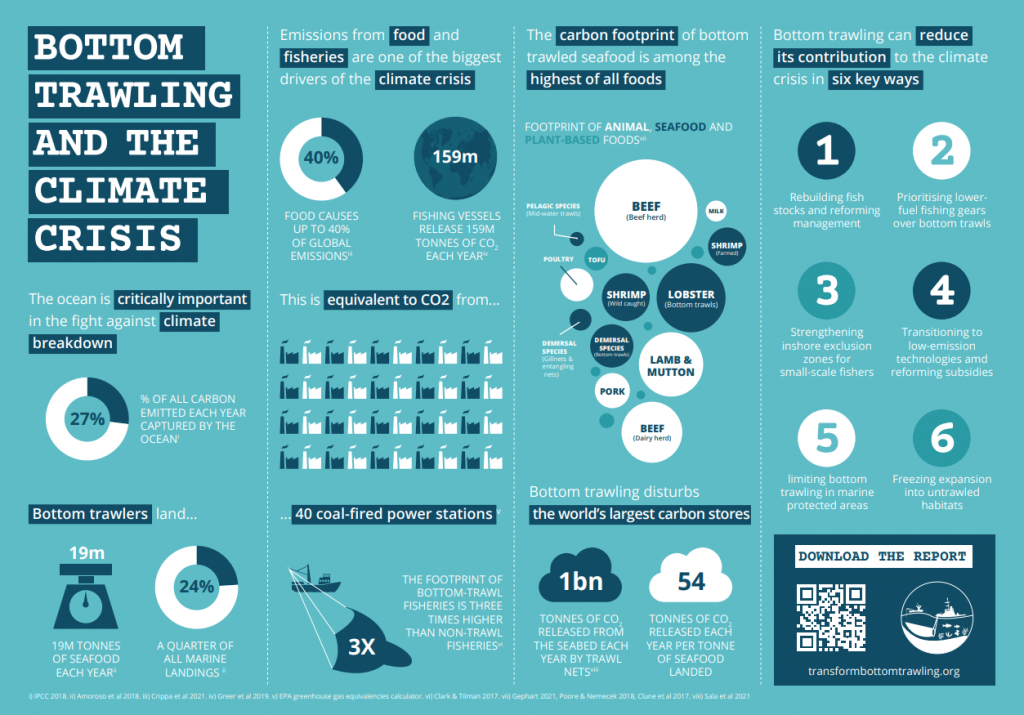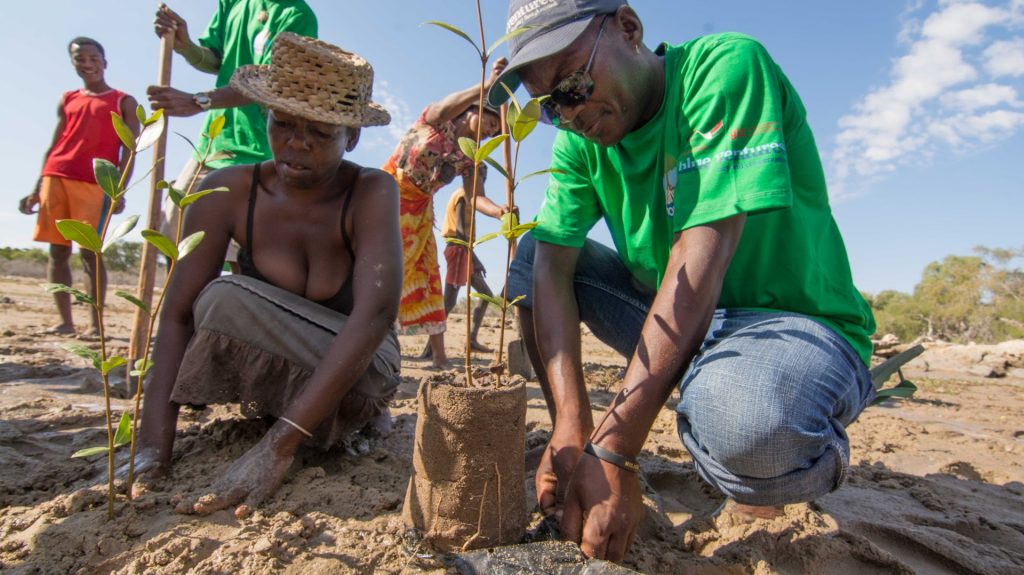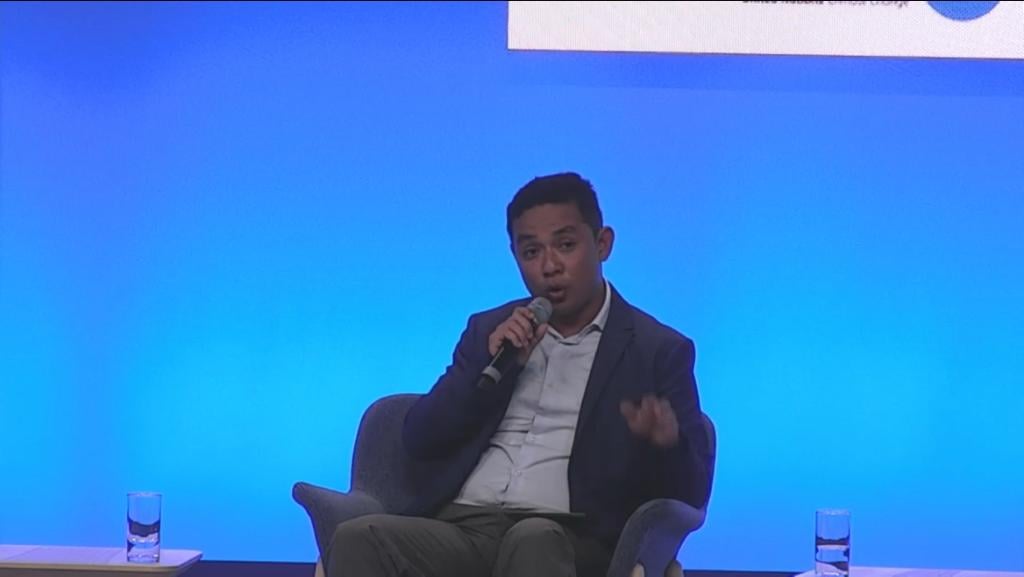November 2021
After two weeks of frantic negotiations, the Glasgow Climate Pact has been widely criticised for its lack of ambition and urgency. The commitments made will only limit temperature rises to 2.4°C, well above the 1.5 target of the Paris Agreement. If much more is not done, the effects on the coastal fishing communities where Blue Ventures works will be catastrophic: dying reefs, deadly heatwaves, droughts, and ecosystem collapse.
Despite many shortcomings, the Glasgow Climate Pact did yield progress for ocean protection. The ocean is now recognised under the UNFCCC (United Nations Framework Convention on Climate Change), with an invitation for all countries to consider integration and strengthening of ocean-based action, opening the door for greater marine conservation worldwide.
Playing our part to bring focus to the ocean we hosted blue carbon panels in both the blue and green zones, as well as a side event in partnership with the Transform Bottom Trawling Coalition and Our Seas on bottom trawling and a net-zero future. Our colleagues from around the world also took to stages across Glasgow where they championed the importance of nature-based ocean solutions incorporating a communities first approach to tackling the climate emergency.
Dive in and explore these events and catch up on the important messages and conservations to surface from COP26 below.
Bottom trawling is a common way of catching fish that involves dragging heavy nets across the seabed. Around a quarter of the world’s seafood is caught this way, with vessels landing around 19 million tons each year, more than any other method. Seafloor sediments and habitats are the world’s largest carbon sinks and disturbance by trawl nets is thought to contribute to the climate crisis, releasing up to 1.5 billion tonnes of CO2 each year.
Ahead of COP26, together with the Transform Bottom Trawling Coalition, we published a new briefing that summarises this emerging field of research, outlining the known major impacts from bottom trawling on greenhouse gas emissions and identifying key mitigation opportunities.
We partnered with the Coalition and Our Seas to host a hybrid panel event in Glasgow exploring ‘Bottom trawling and a zero-carbon future: what needs to change?’.

We are beyond thrilled to announce that Tahiry Honko – the world’s largest community-led mangrove carbon conservation project – has won the 2021 IUCN Pathfinder Award in the climate change category.
This project is the first carbon sequestration project in Madagascar focused on a mangrove forest and aims to provide a long-term income for the residents of the remote Bay of Assassins through the sale of carbon credits.

Say hello to Dr Hajaniaina Ratsimbazafy, Blue Ventures’ Conservation Director in Madagascar. Haja oversees our research, monitoring, advocacy and partnerships. Working closely with field teams, local partners, communities and government.

Explore the previous edition of Hooked on fisheries and advocacy.
Sign up for regular updates of Hooked